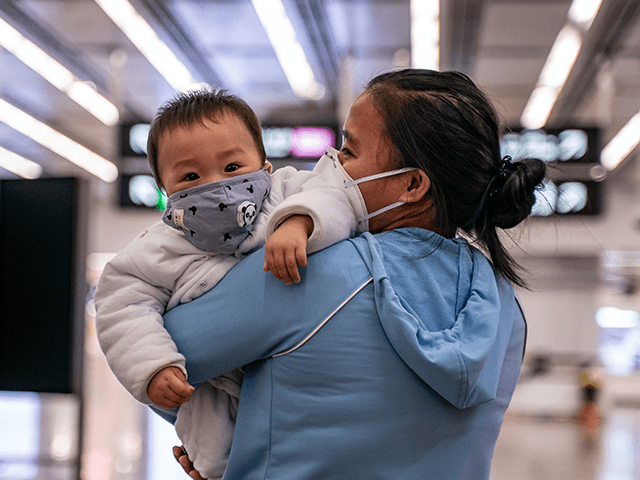Chinese subjects harshly punished for violating the communist nation’s “One Child Policy” vented their anger and frustration Tuesday at Beijing’s desperate call for more children to stave off demographic collapse.
The Chinese Communist Party (CCP) implemented a draconian law in 1979 to keep the population down by allowing only one child per couple. The infamous “One Child Policy” was denounced by human rights groups around the world as it produced a wave of abortions and infanticides, especially from couples determined that their sole allotted child should be a boy.
The One Child Policy ended in late 2015 with a new, but no less coercive, order by dictator Xi Jinping that families would now be allowed to have two children. This action was undertaken largely in response to disturbing demographic forecasts that showed China’s population aging rapidly, leaving far too many elderly dependents and not enough young workers to support them.
Those demographic trends did not improve as much as hoped, according to China’s 2020 census, so on Monday, the Communist Party announced couples would now be permitted to have three children.
Radio Free Asia (RFA) spoke to some victims of the One Child Policy angered at the damage to their families inflicted by China’s previous draconian laws. Chinese social media users were angry their government still sees its people as “resources, or tools” devoid of free will, with every aspect of their lives planned by the state.
A man named Ling Baozhen said his family went into hiding when he was born under the One Child Policy, while his sister was forced to have an abortion at seven months by Party family planning officials. He said China’s policies are a “violation of basic human rights, as well as a gross violation of human dignity,” whether the limit enforced on couples is one child or three.
“For wealthy families, there is no problem in having three children, or even more, but it’s very hard for people on the bottom rung of the social ladder to even buy a place to live, and to marry,” he pointed out.
An anonymous Chinese demographics scholar amplified this point by telling RFA the increased three-child limit would not meet China’s population growth goals because “nobody can afford to give birth to children, or to raise them.”
“There is already too much pressure on working-age adults, between the ages of 18 and 55, and the pressures are even worse on those in their twenties and thirties,” the expert said. “There will need to be a sea change in the way society operates if they want to make it affordable for those people to have and raise kids.”
One of the major social changes he pointed to was the decline of “three generation” extended family living conditions in China, which once made it commonplace for grandparents to care for the children while their parents worked.
The New York Times (NYT) found young Chinese professionals agreeing that children have become too difficult and expensive to raise, for both impoverished rural families and ambitious young workers coping with skyrocketing housing costs in rapidly growing Chinese cities.
For all China’s talk of communism and socialism, the NYT said Chinese social media was filled with complaints about inadequate social services, unaffordable education, a desperate shortage of child care, and a great fear among young women that having children would irrevocably damage their career prospects. China’s state-run Xinhua news service ran a poll to measure enthusiasm for the three-child policy but deleted the poll in embarrassment when enthusiasm proved to be undetectable.

COMMENTS
Please let us know if you're having issues with commenting.